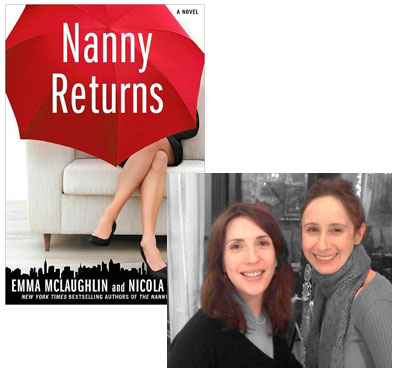Lauren Kate’s Case for Selective Reading

I stayed up until 2 A.M. the other night to read Lauren Kate‘s Fallen in one sitting—well, technically, after reading the first 50 pages on the subway home—compelled by my curiosity about how the drama was going to play out—I’d grasped pretty early on that Daniel, the mysterious boy the novel’s heroine becomes fixated on shortly after her arrival at a harsh new reform school, was at the very least immortal and probably a fallen angel, but I looked forward to finding out just who else in the supporting cast had more to them than met the eye as the story hurtled towards its climax. (Which, fair warning, sets up as much if not more than it resolves.) Today’s essay kicks off a two-week blog tour for Kate; tomorrow, for example, she’ll be visiting Through a Glass, Darkly.
When I was ten months old, my mother made an appointment with our ear doctor because she thought I was deaf. Hearing the story told for the first time to my husband recently, I was impressed by my mom’s verve as she relayed the family lore. Her eyes lit up telling of the placid way I’d stare into space when she tried to reason with me, how often I ignored my name being called.
A half-hour doctor’s visit revealed perfectly sound hearing in both my ears, and left only one explanation: at less than a year old, I was already selectively hearing my mother. (This is when my dad chimes in: “smart kid.”)
When people invoke the term “selective memory” or when my mother refers to my lifelong “selective hearing,” they’re referring to a way of tuning out what, for whatever reason, we don’t want to retain. Those terms get a bad rap, but I’d like to make a case for selective reading—tuning out or tuning up certain moments in a narrative—as a key to reading fiction.
11 January 2010 | guest authors |
Emma McLaughlin & Nicola Kraus: Nanny’s Back, But On Their Terms

After the success of The Nanny Diaries back in 2002, there was strong interest in the publishing world in an immediate sequel, even though, as Nicola Kraus (left) recalled over a recent lunch, “we were clear that Nanny would never nanny again, and we thought that was the end of the story.” Her co-author, Emma McLaughlin, elaborated; various publishers offered significant incentives for a sequel, but there were conditions: “They all wanted Nanny to get her comeuppance,” she explained; either Nanny would start her own agency where the nannies on the staff would put her through hell, or she’d have to hire a nanny who would put her through hell. “We walked away from those leads because we stood by what Nanny had said at the end of the book,” McLaughlin added. “And we didn’t get into writing to set up a franchise. We didn’t want to come back to Nanny unless we had something new to say about her.”
“It was a hard decision,” McLaughlin admitted. “It was a lot of money, enough that we would have been set –” “But it would’ve been a bad book,” Kraus chimed in. It wasn’t until two years ago that they hit upon the idea of Grayer, the pre-adolescent boy from The Nanny Diaries, discovering the videotape Nanny made at the end of that book and tracking her down for a confrontation. The question then became: What would happen? “It was different than any of the other books we’ve written since, in that from the beginning we knew all the characters very well,” Kraus said. “The real work of it was finding the story that would weave the characters back together.”
I wondered what the pair thought about the success of nonfiction like 740 Park in the years after The Nanny Diaries, as it seemed to me like a continuation of the fascination with a certain class of Manhattan (and by extension American) elites. Kraus acknowledged the point, then added that they’d been fascinated by the recent trial and conviction of Brooke Astor’s son for bilking her of millions while she was alive then forging alterations to her will. “How would the dysfunctions we depicted in the first novel play out over generations?” she asked rhetorically. “How would the economy falling apart affect a class of people who have chosen money over love?” And thus: Nanny Returns.
10 January 2010 | interviews |

 Our Endless and Proper Work is my new book with Belt Publishing about starting (and sticking to) a productive writing practice.
Our Endless and Proper Work is my new book with Belt Publishing about starting (and sticking to) a productive writing practice. 
